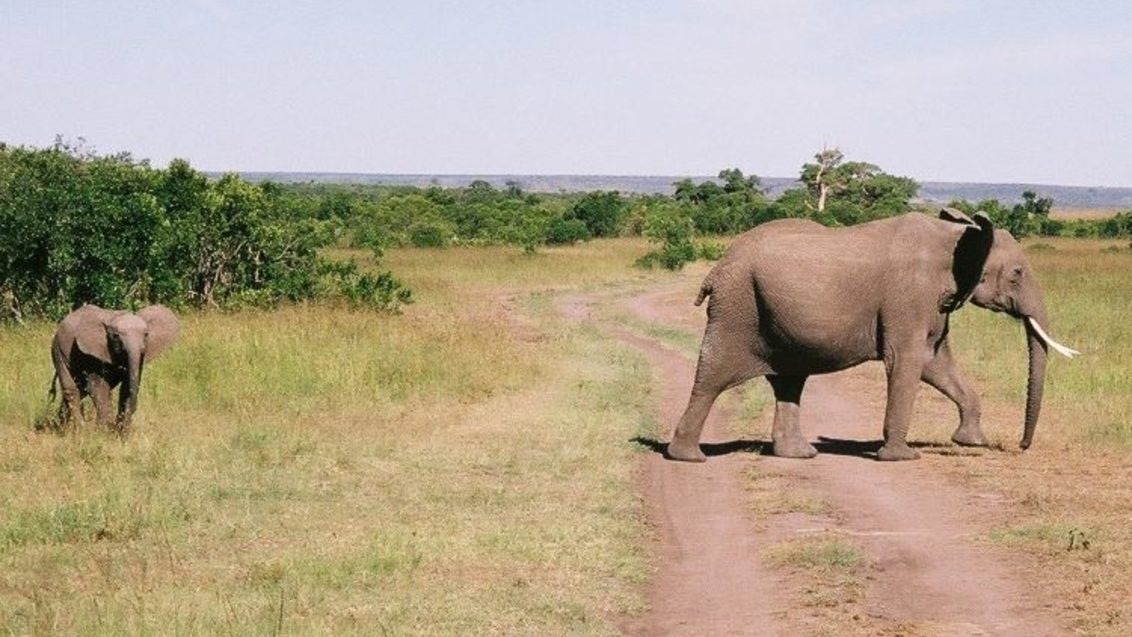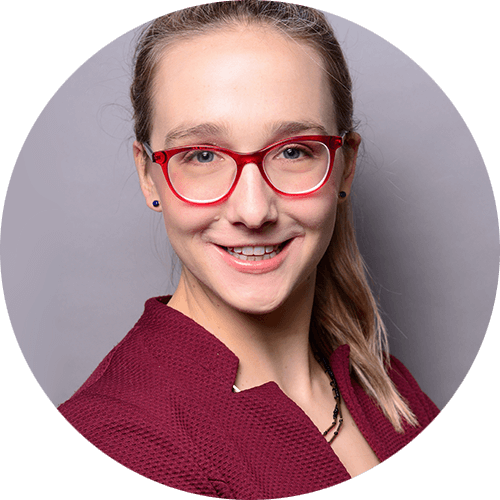Plumbing, creep and an elephant

Our team member Lena Koever recently completed an MBA. Her thesis* examined how employees view growth and related changes at the Syngenta Foundation. We asked her to tell us more.
Syngenta Foundation: Why did you choose this particular topic?
Lena Koever: There are two main reasons, and they form an interesting contrast. One is that the Syngenta Foundation (SFSA) is making its way through a phase of growth and organizational change. So I had some close daily experience of the topic. At the same time, there is not much literature about organizational change and employee perceptions in the non-profit (NPO) sector. Everybody seems to have written about companies instead.
Why should employees’ views of such change be any different at NPOs?
One aspect might be the reasons for organizational change. Mergers, for example, are much less common in this sector than at corporations. So the need to combine two organizations’ cultures is rarely an issue. At NPOs, it is often budget shortages that force changes to a business model or funding strategy. But I think a more important reason for any differences could be employee motivation. Numerous studies suggest that individuals select NPOs based on their own values and needs. Personal identification with a foundation or NGO is therefore probably often higher than with a company or a public sector bureaucracy. Personal reactions to change are therefore likely to be more emotional.
Apart from your own close involvement, what made SFSA a suitable field for an MBA investigation?
Over the past five years, we’ve pursued ambitious organizational and programmatic growth. Two key changes have been a budget increase through external fundraising, and expansion of our work both geographically and thematically. These have been accompanied by a considerable increase in employee numbers, several organizational alterations, and new tools and processes.
You asked SFSA colleagues and Board Members for their views on these changes. What do they see as the main challenges and opportunities?
To take the top three in each category: one major challenge is that many external donors don’t cover costs sustainably. My interviewees also see a danger of ‘mission creep’, and that quality can suffer as complexity grows. Perceived opportunities are more personal. The top two are greater career development options and additional resources for one’s work. The third major opportunity – somewhat counter-intuitively in a period of employee growth – is that colleagues feel they are being heard more.
How do those views relate to ‘growth-change’ theories in the literature?
Pretty closely. I looked, for example, at Greiner’s Growth Model, Stevens’ Non-Profit Lifecycle Model, and the ‘Ten Common Growing Pains’ described by Flamholtz. My interviewees echoed a lot of what these authors say. You’ll find details in the thesis summary on our Publications page.
What sounded different?
Interviewees voiced both some praise and concern that don’t normally feature in the literature. They commented favorably on our communication and transparency. In most studies on organizational change, employees complain about a lack of both. The other difference was that SFSA staff’s strongest concerns relate to financial sustainability. Most research on perceptions during change centers on leaders’ behavior and employees’ anxiety. My colleagues highlighted unsustainable external funding as their most important concern.
Your thesis says that ‘the elephant in the room is whether bigger is always better’. What’s the answer?
Many experts warn NPOs against automatically assuming that growth is good. Some even believe that such organizations sometimes just grow ‘for growth’s sake.’ But non-profit expansion isn’t all bad! It can often be the route to greater impact, scale, and efficiency. The Red Cross or Amnesty International couldn’t tackle worldwide problems from a garage.
What are the main lessons from your thesis?
Growth models suggest that organizations experience a number of ‘growing pains’ during change – and the Syngenta Foundation is certainly no exception. There were several pieces of advice that emerged. Some are less surprising, as the need to maintain a clear mission and weigh the trade-offs of growth. Two additional insights I summed up as ‘If you take the King’s shilling, you do the King’s bidding’ and the importance of investing in ‘organizational plumbing.’
Plumbing, shillings, and weighing all sound very homely. Could you say a little more about the lessons?
‘Mission creep’ can result from financial pressure and an opportunistic search for money. In other words – take shillings from too many different kings, and you get pulled in lots of different directions. Meanwhile ‘plumbing’ refers to the functions required to run an NPO well. Many external funders dislike covering these, which can lead to an ‘NGO Starvation Cycle.’ Pursuing growth without the necessary infrastructure is a recipe for failure. But too much admin can cause what one author calls a ‘crisis of red tape’. Finding the right balance in all these areas can be quite a challenge. At the same time there was a lot of energy about some of the opportunities perceived from growth – and finding creative ways to build on the enthusiasm is important.
If you were able to take your thesis topic further, where would you go?
It would be good to listen to other NPOs, for example, to compare different experiences with organizational growth. I would also expand the study design. Standardized questionnaires across multiple organizations would enable quantitative analysis. I could then make more specific recommendations to selected sub-sectors. It would also be interesting to see how SFSA employees’ views change over the next five to ten years. Interviewing colleagues can be great fun!

Lena Koever works in our Basel office as a Policy Program Manager. Particular topics of interest include climate-smart agriculture and youth entrepreneurship. She also runs our new info service, the SFSA Policy Watch. Prior to joining SFSA, Lena worked for the German Development Agency (GIZ) in Madagascar on public-private partnerships. Lena holds degrees from the University of Oxford (BA History and Politics, MSc African Studies) and the University of Basel (MBA, International Health Management)). In her free time, she enjoys outdoor sports (preferably near a mountain), traveling, and spending time with friends at the river Rhine.
